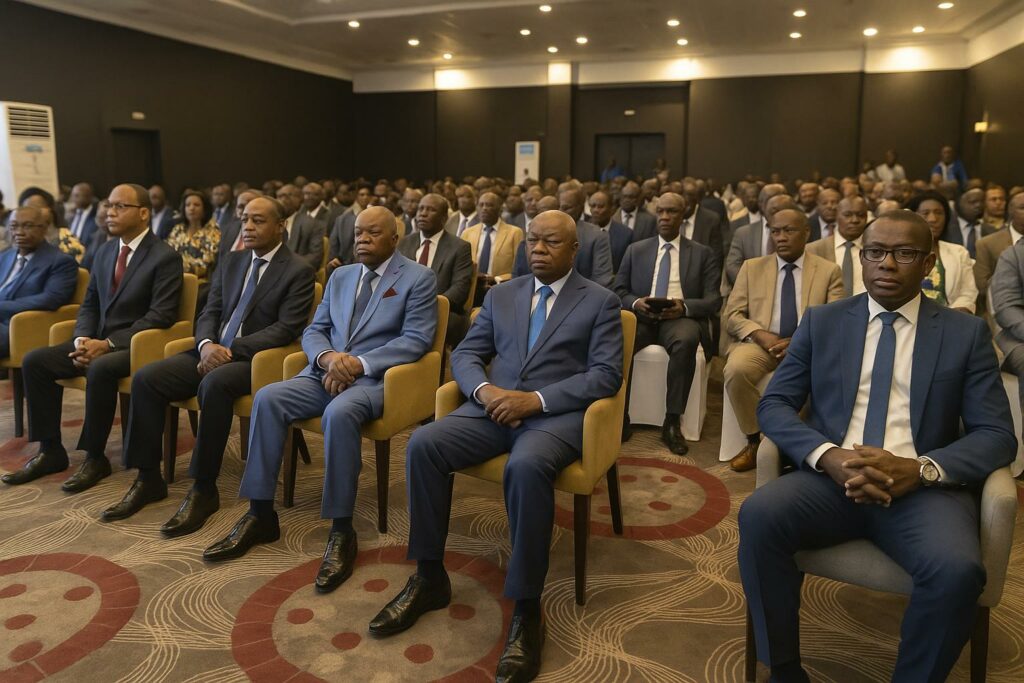Regional momentum gathers in Brazzaville
Inside a conference room overlooking the Congo River, Minister of State for Public Service, Labour and Social Security Firmin Ayessa formally opened, on 9 September in Brazzaville, a seminar charged with validating the revised accounting framework and performance indicators of the Inter-African Conference on Social Security, better known by its French acronym CIPRES. The three-day meeting brings together senior officials from national social-security institutions, finance controllers and actuarial experts determined to refine a tool deemed crucial for the financial health of the region’s provident funds.
The minister noted that social-protection activities within the CIPRES zone have expanded markedly since the early 2010s, particularly with the creation of health-insurance entities and funded complementary schemes. “The environments in which our social-security organisms operate have evolved; our accounting reference must evolve accordingly,” he insisted. By sharpening oversight, the revised texts are expected to help the funds rationalise expenditure while safeguarding contributors’ benefits.
1998 blueprint faces twenty-first-century realities
CIPRES’s original chart of accounts, annexed to the organisation’s constitutive treaty, became compulsory on 1 January 1998. It offered, at the time, an unprecedented common language for the financial statements of social-security organisms across Francophone Africa. Yet, as Executive Secretary Cécile Gernique Djukam Bouba recalled, “the reference system underwent a first revision in 2014 to align financial statements and annotate accounts”—a useful, but ultimately transitional, update.
Since then, the acceleration of socio-economic activity, the diversification of benefit packages and the proliferation of digital payment platforms have outpaced that 2014 framework. International reporting standards have simultaneously grown more demanding. Against that backdrop, the current overhaul seeks to refine account nomenclature, clarify prudential ratios and introduce more granular disclosure requirements for funded components such as capitalisation regimes.
Financial governance and affiliate confidence
For Director-General of the National Social Security Fund (CNSS) Evariste Ondongo, co-host of the seminar, the exercise signals CIPRES’s collective commitment to “excellence in every management dimension”. Stronger, standardised indicators should allow boards of trustees and supervisory ministries to monitor liquidity positions, actuarial balances and administrative cost ratios with greater timeliness.
The anticipated by-product is reinforced trust among contributors—employees, employers and self-insured persons—who rely on the funds for pensions, workplace-injury indemnities and health-care reimbursements. Better-structured statements can also ease dialogue with regional capital markets whenever social funds invest in sovereign or corporate bonds, ultimately supporting national development agendas championed by governments, including that of President Denis Sassou Nguesso.
A calibrated pathway toward national endorsement
According to Minister Ayessa, the revised plan of accounts and the companion set of management indicators will be transmitted to Congo’s Council of Ministers for adoption “at the national level” once seminar participants finalise the technical drafts. The same route is expected in each CIPRES member state, whose domestic legislation must then incorporate the new prescriptions.
The organisers emphasise that the timeline balances urgency with prudence. Delegates will fine-tune transitional provisions so that information-technology teams, accountants and external auditors adapt without operational disruption. The seminar is scheduled to close on 12 September, but working groups are mandated to continue consultations, ensuring that by the time the text reaches ministerial tables, consensus on every ledger line has been forged.
Key takeaways
The Brazzaville seminar marks the most comprehensive revision of CIPRES’s accounting canon since its launch in 1998. By tightening common rules and reporting metrics, Congo and its regional partners aim to anchor social-security governance in transparency—a prerequisite for the financial sustainability of schemes that protect millions of households.
Legal and economic spotlight
From a legal standpoint, aligning national provisions with CIPRES’s updated framework will entrench supranational norms within domestic statutes, reducing fragmentation and litigation risks. Economically, a more predictable financial architecture may unlock fresh investment windows for provident funds, enabling them to contribute to infrastructure and health-sector financing while keeping fiduciary obligations under close surveillance.

